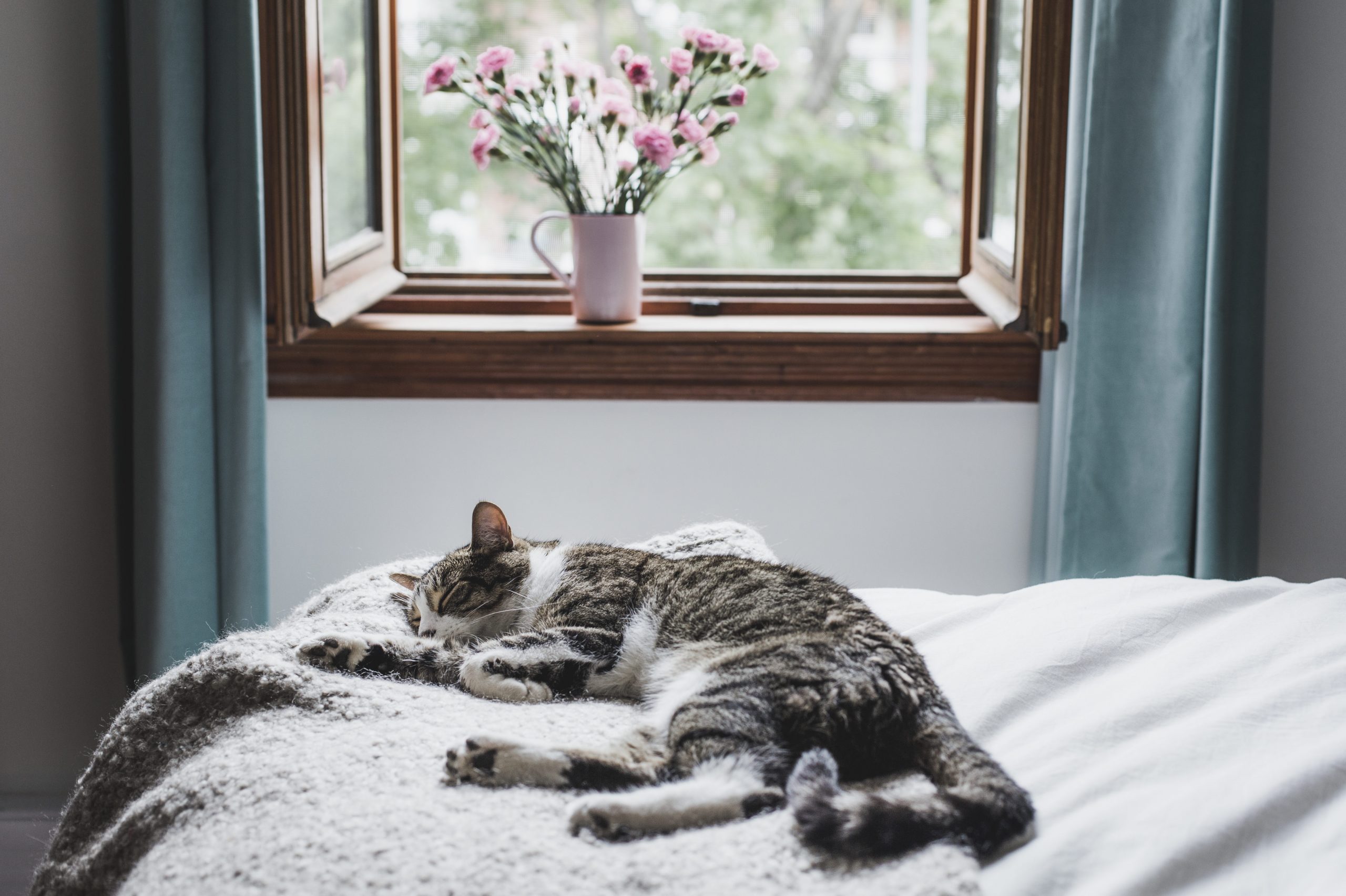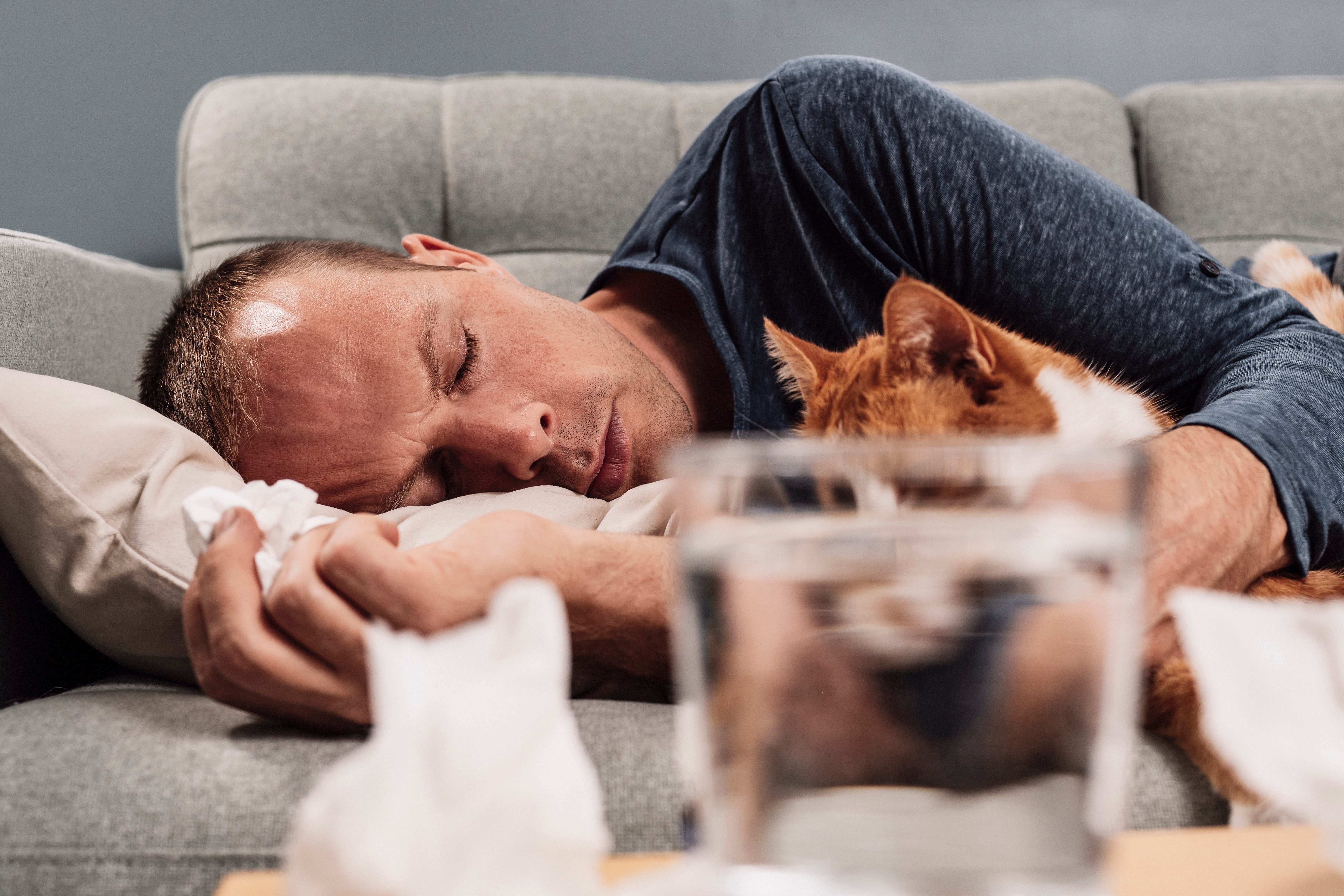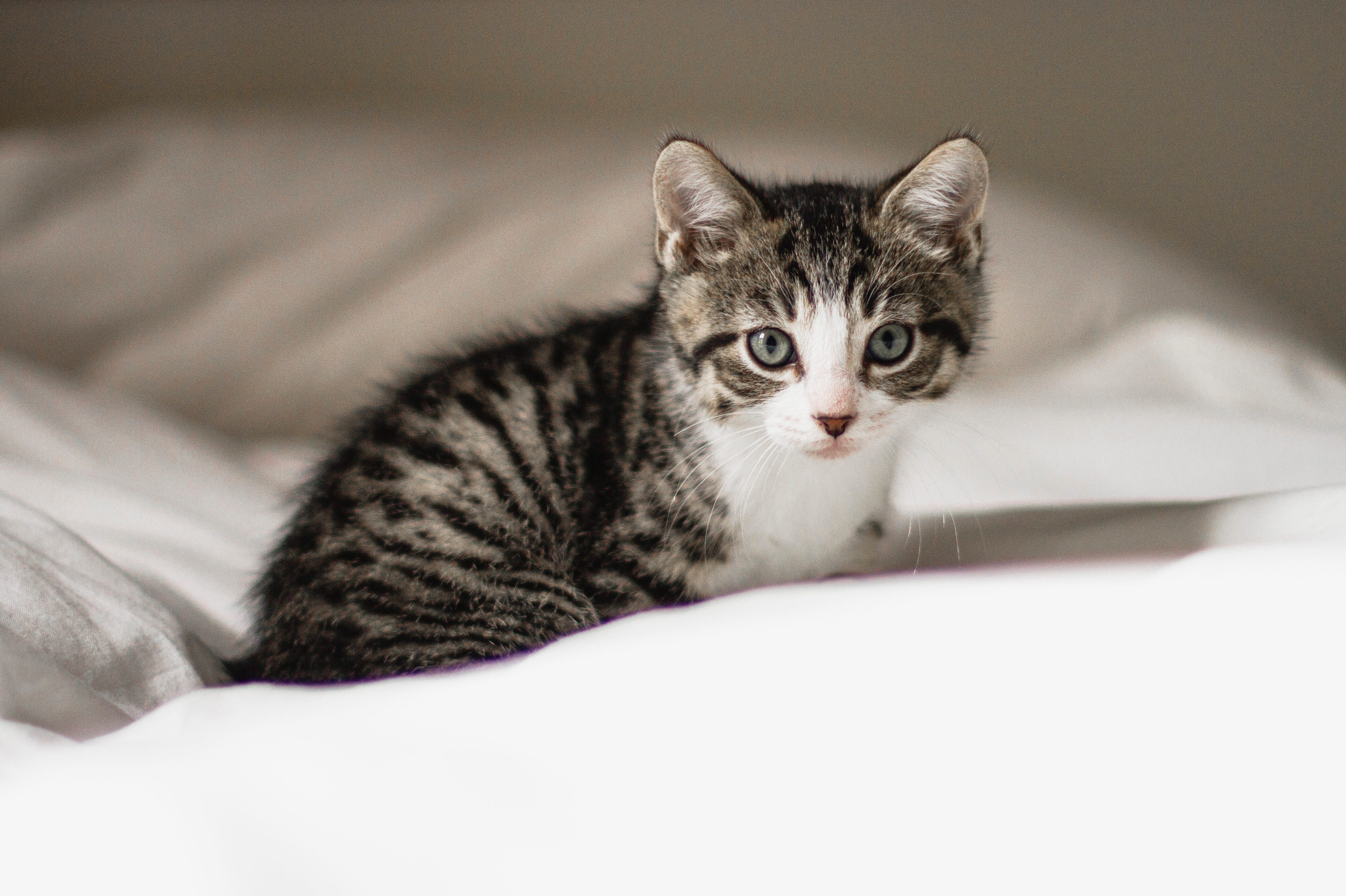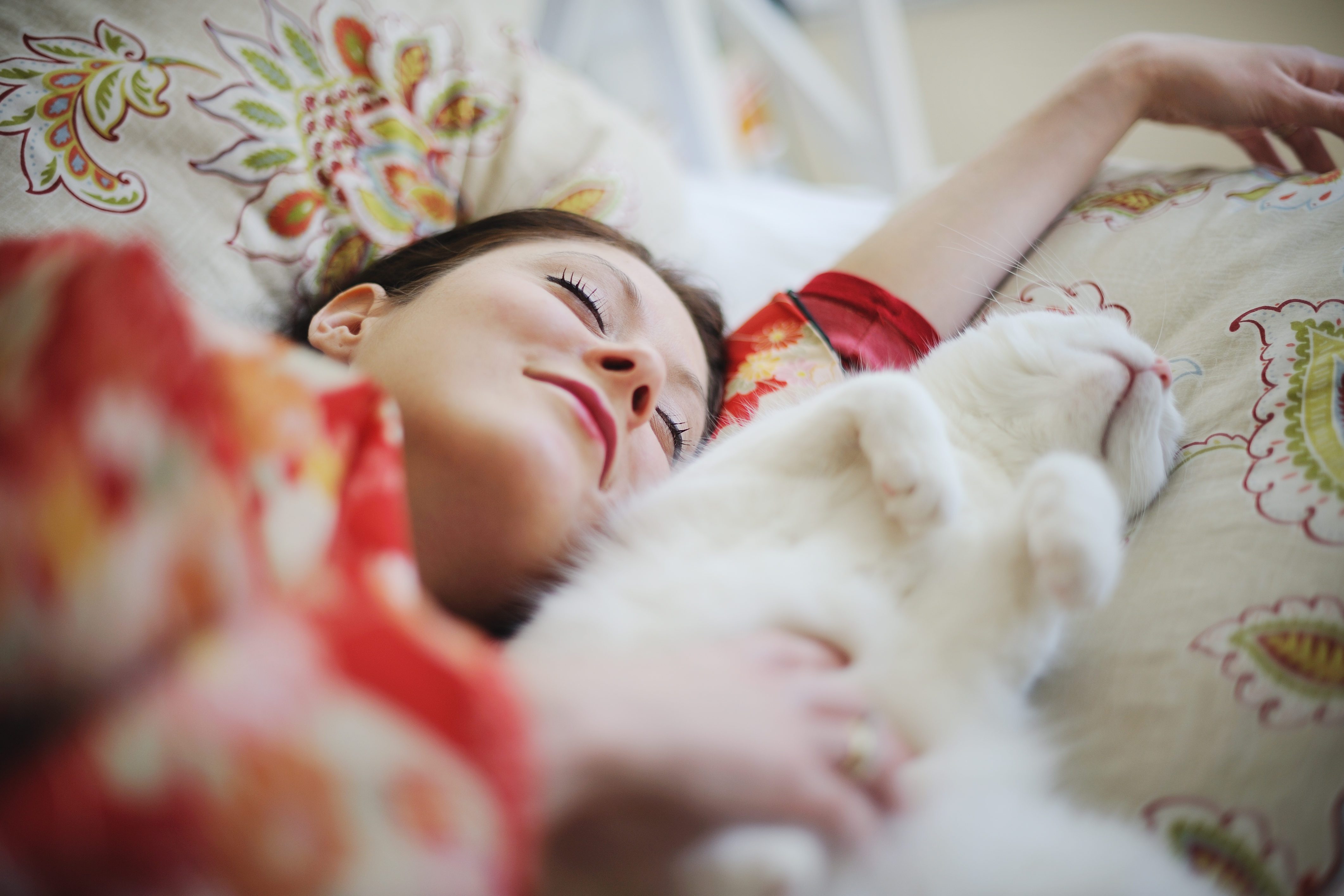Many cat parents love it when Kitty curls up in bed with them. But could sleeping with cats have potential health consequences?

Is It OK to Let Your Cat Sleep in Your Bed?


Risk: Disrupted sleep
Cats are champion sleepers, clocking around 15 hours a day, but their sleep patterns aren’t the same as ours. A cat sleeping the day away might be ready to compete in the Kitty Olympics come 2 a.m., racing around the room and leaping off furniture. “Some cats will sleep soundly at night, but others are more alert and active while you are trying to sleep,” explains Geoff DeWire, DVM, “veterinarian-in-chief” for the cat litter company PrettyLitter. “An active cat may be disturbing your sleep cycles, which can result in unrestful sleep.” Athletic feats aside, cats may snore, scratch or simply prod you for attention during your sleeping hours.

Risk: Allergies and asthma
“Roughly 12% of Americans have allergies to cats, often resulting in breathing difficulty, which can compromise your sleep quality,” Dr. DeWire warns. “If you have known allergies, you should avoid allowing your cat in your bed.” Some doctors recommend removing cats from the home if someone is allergic, but there are less drastic measures you can take to ease allergy and asthma suffering. By keeping your bedroom door closed and using a good HEPA filter, you can eliminate allergy and asthma triggers while you’re sleeping. Also make sure to vacuum and dust often.

Risk: Fleas and other parasites
When you share your bed with a cat, you’re also sharing your bed with any parasites the cat is harboring. “If your cat goes outdoors, fleas, ticks and intestinal parasites pose a risk to you when your cat returns home and cuddles up with you at night,” Dr. DeWire warns. Fleas can’t live on people, but they do bite, leaving behind itchy welts.
Yes, that’s icky, but is it reason enough to kick Kitty out of bed? Well, that’s up to you and your vet, who can consider several different factors. For instance, the risk is much smaller if you have an indoor cat. “Talk with your veterinarian about the options available to protect your cat and your family [such as flea collars] if your kitty has outdoor exposure,” Dr. DeWire says.

Risk: A threat to young children
The old wives’ tale about cats sucking the life out of sleeping children isn’t rooted in fact, but it’s still a good idea to keep cats out of the rooms where babies sleep. Cribs are attractive napping spots for cats, given that they’re high up, protected on multiple sides and soft. But even with the most loving and friendliest cats, there is a risk that that tight ball of fur could inadvertently smother a sleeping baby. So you should save the irresistible cat-baby cuteness for when they’re awake!

Risk: They can pass on diseases (and vice versa)
If you’re a cat owner or even just a concerned cat lover, you might be vaguely familiar with the concept of “zoonotic” diseases that can be transferred from cat to human. COVID-19 is one of the most notorious examples. Other examples include ringworm, roundworms, hookworms and cat scratch disease. While Dr. DeWire says that the odds of transferring disease is low, it’s still important to be cautious if you or your cat have a potentially transferable illness.

And if those aren’t issues for you?
The bottom line is that, yes, there are some risks associated with snoozing with your cat, but as long as you know about them and are OK with the risk, then it’s perfectly fine! “If you aren’t allergic and your cat sleeps soundly at night, then by all means, cuddle up with your kitty,” Dr. DeWire says. Just make sure to stay on top of your vet visits and all flea, tick and disease protocols. And should your sleep ever begin to suffer, know that it’s within your pet-parent purview to set some bedroom boundaries. You’ll see Fluffy in the morning!
Additional reporting by Susannah Bradley.
About the expert
|
Why trust us
At Reader’s Digest, we’re committed to producing high-quality content by writers with expertise and experience in their field in consultation with relevant, qualified experts. We rely on reputable primary sources, including government and professional organizations and academic institutions as well as our writers’ personal experiences where appropriate. We verify all facts and data, back them with credible sourcing and revisit them over time to ensure they remain accurate and up to date. Read more about our team, our contributors and our editorial policies.
Source:
- Geoff DeWire, DVM, veterinarian “in chief” for cat litter company PrettyLitter and the owner of Devon Veterinary Hospital in Devon, Pennsylvania



















